
Sign up for my new newsletter! (Link below) Also: Co-author of Abundance, host of Plain English, and contributing writer at The Atlantic.
20 subscribers
How to get URL link on X (Twitter) App


 The full transcript is here:
The full transcript is here:

 This is such a narrow and specific statistic that I don't think it's wise to draw confident big-picture conclusions from it, but ...
This is such a narrow and specific statistic that I don't think it's wise to draw confident big-picture conclusions from it, but ... 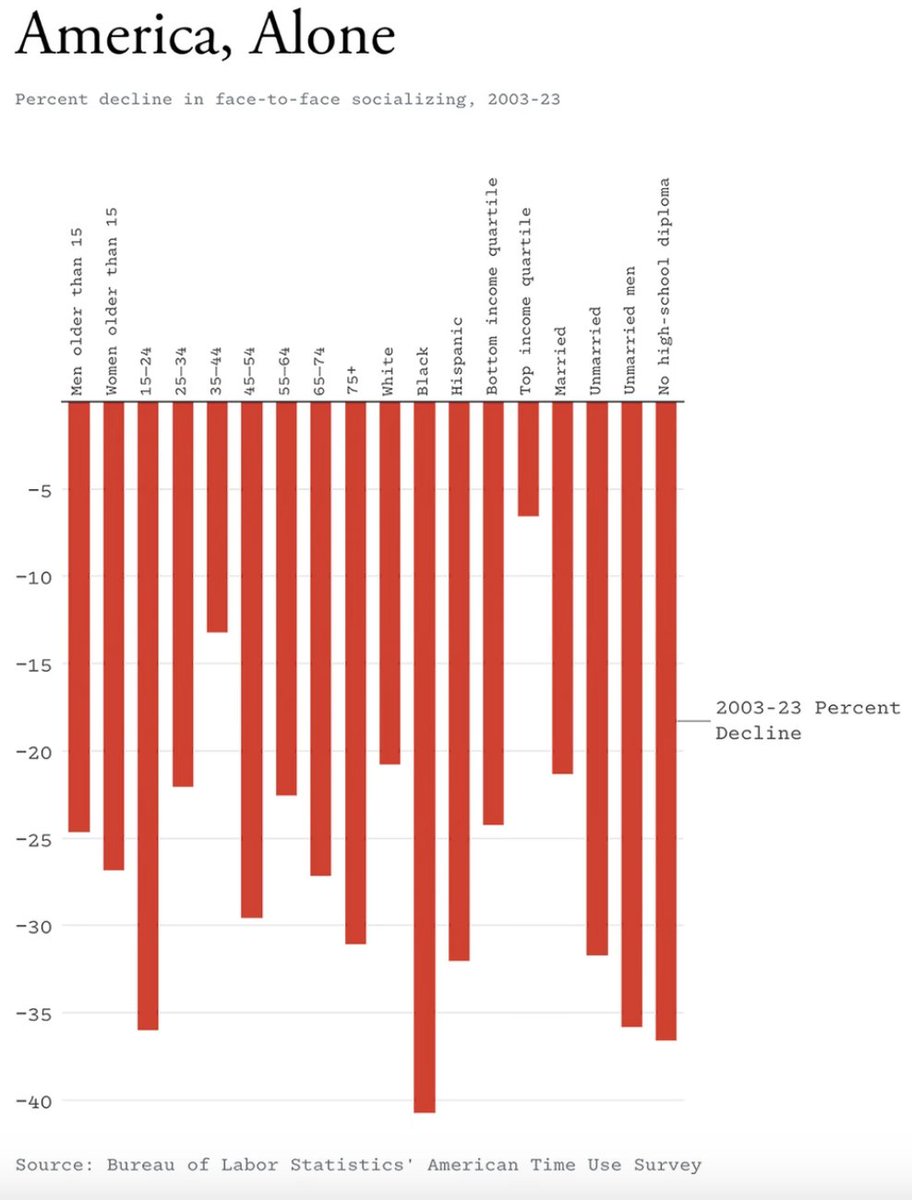



 And here is “The Anti-Social Century,” in full. Gift link! Read and share (and go outside!).
And here is “The Anti-Social Century,” in full. Gift link! Read and share (and go outside!).
 More broadly, I think RFK Jr is just an absolutely fascinating Rosetta Stone for the most important trends in American politics.
More broadly, I think RFK Jr is just an absolutely fascinating Rosetta Stone for the most important trends in American politics. 
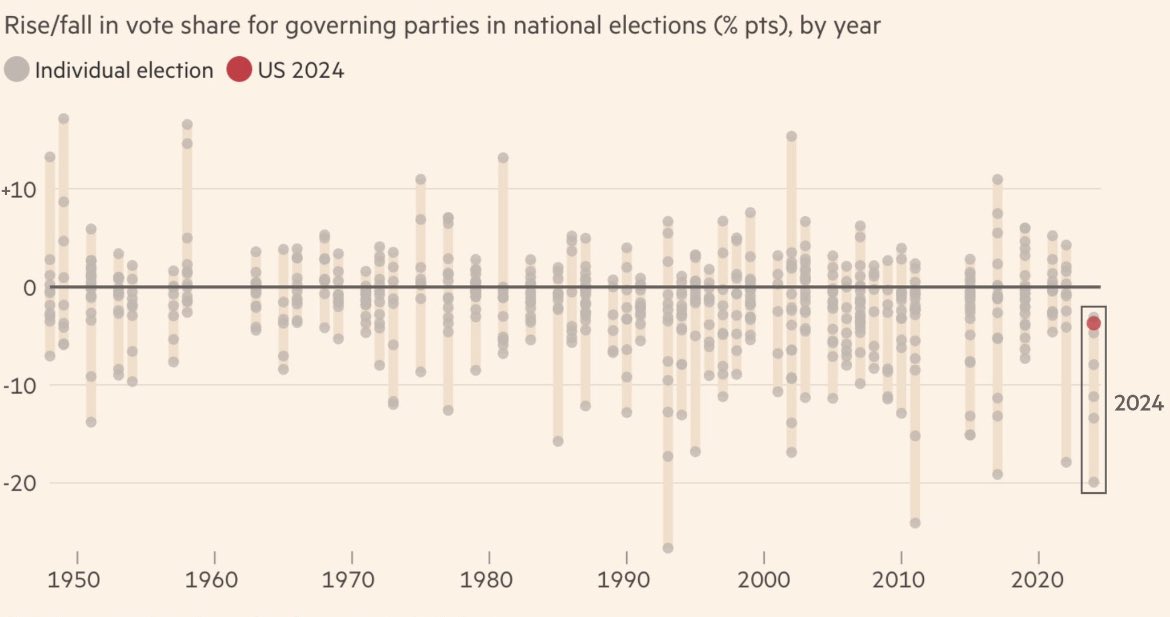
 “This has been a year of global anti-incumbency within a century of American anti-incumbency.”
“This has been a year of global anti-incumbency within a century of American anti-incumbency.” 

 1. Inflation was *a part of* the pandemic.
1. Inflation was *a part of* the pandemic. 

 This exodus is not merely the result of past COVID waves.
This exodus is not merely the result of past COVID waves. 
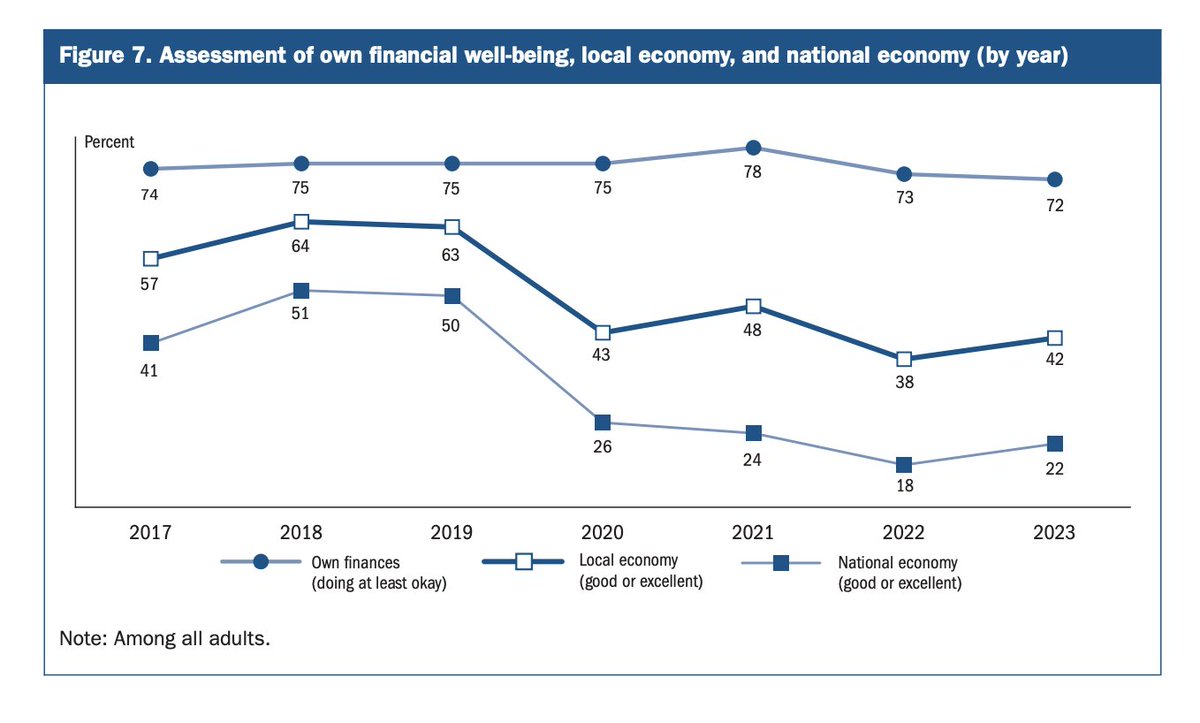

 "Everything is terrible but I'm fine" has a lot of parts to it.
"Everything is terrible but I'm fine" has a lot of parts to it.https://x.com/DKThomp/status/1744856462571053203
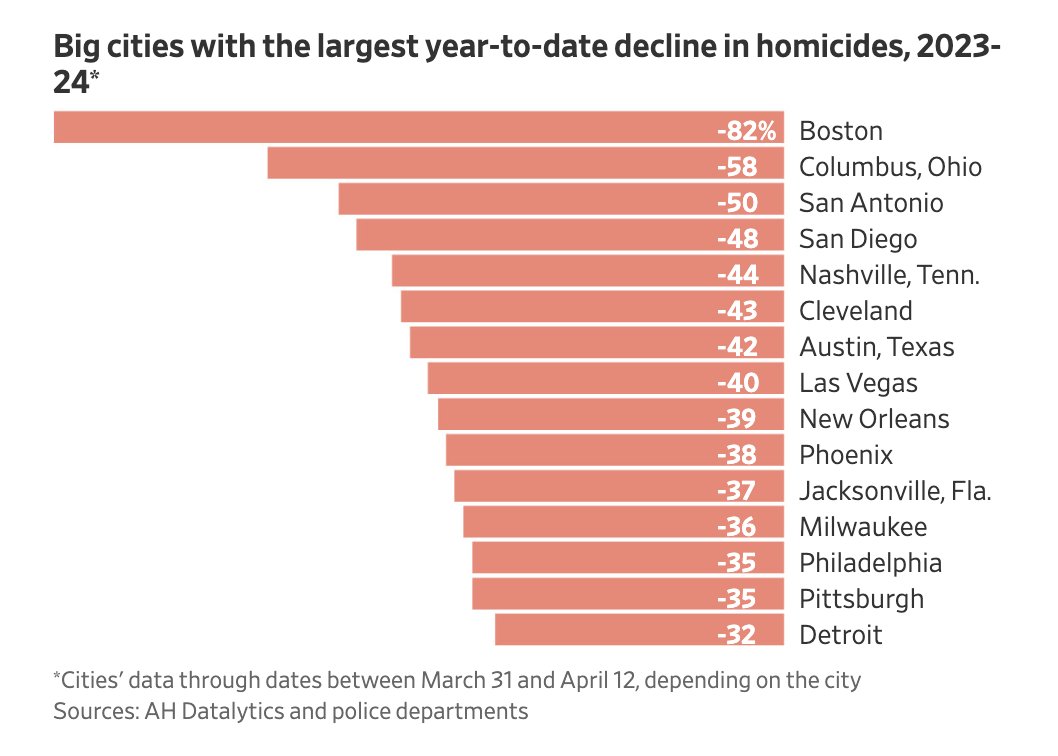
 Link: wsj.com/us-news/murder…
Link: wsj.com/us-news/murder…






 Seems important to arguments about supply side growth and prices that Austin
Seems important to arguments about supply side growth and prices that Austin 


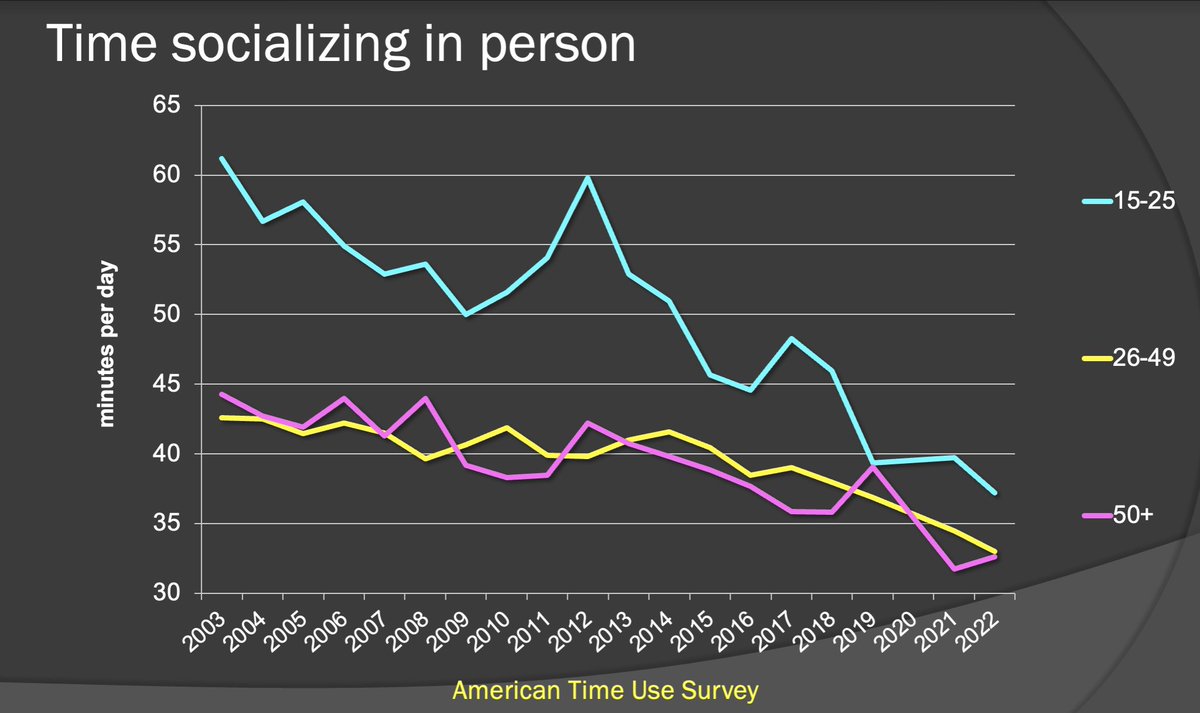

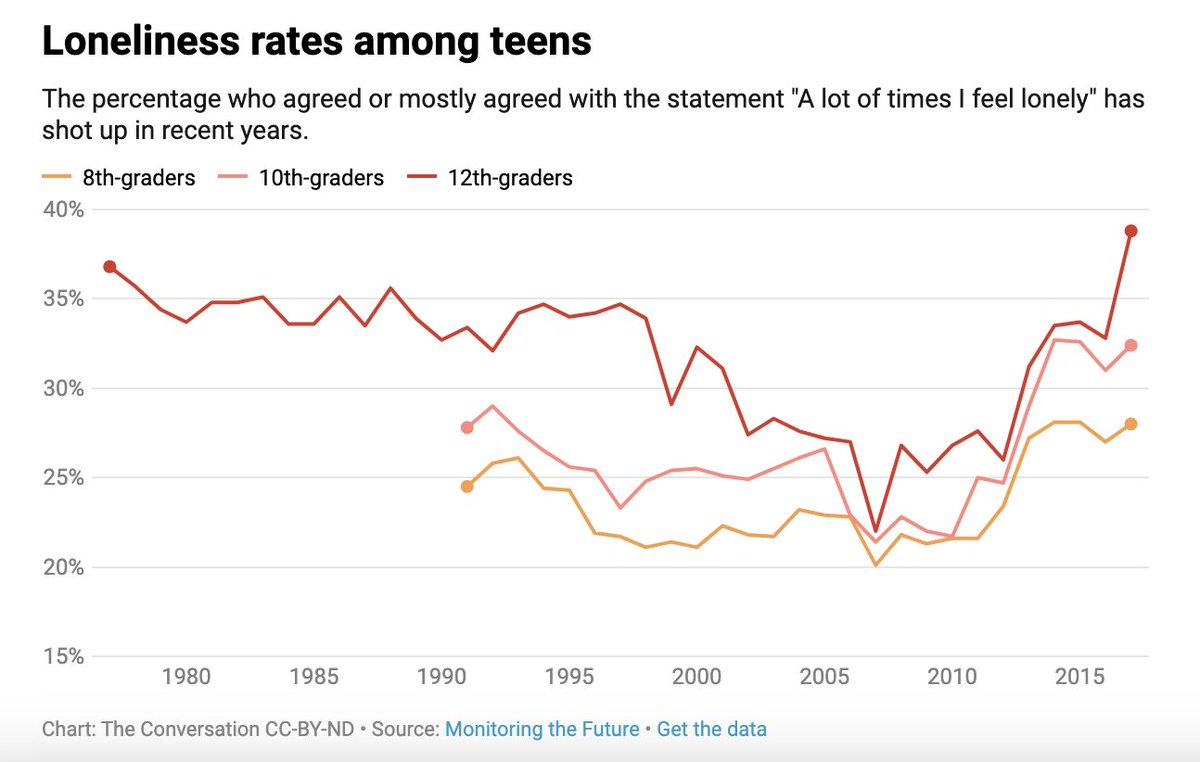

 The gender polarization gap—young women becoming much more liberal; young men becoming a little more conservative—is also about education polarization.
The gender polarization gap—young women becoming much more liberal; young men becoming a little more conservative—is also about education polarization.


https://twitter.com/TheBorisLab/status/1654916428011798528

 It's not just that student scores have been declining in almost every western country since smartphone-social media penetration passed 50%.
It's not just that student scores have been declining in almost every western country since smartphone-social media penetration passed 50%.


 Look hard at this chart.
Look hard at this chart.




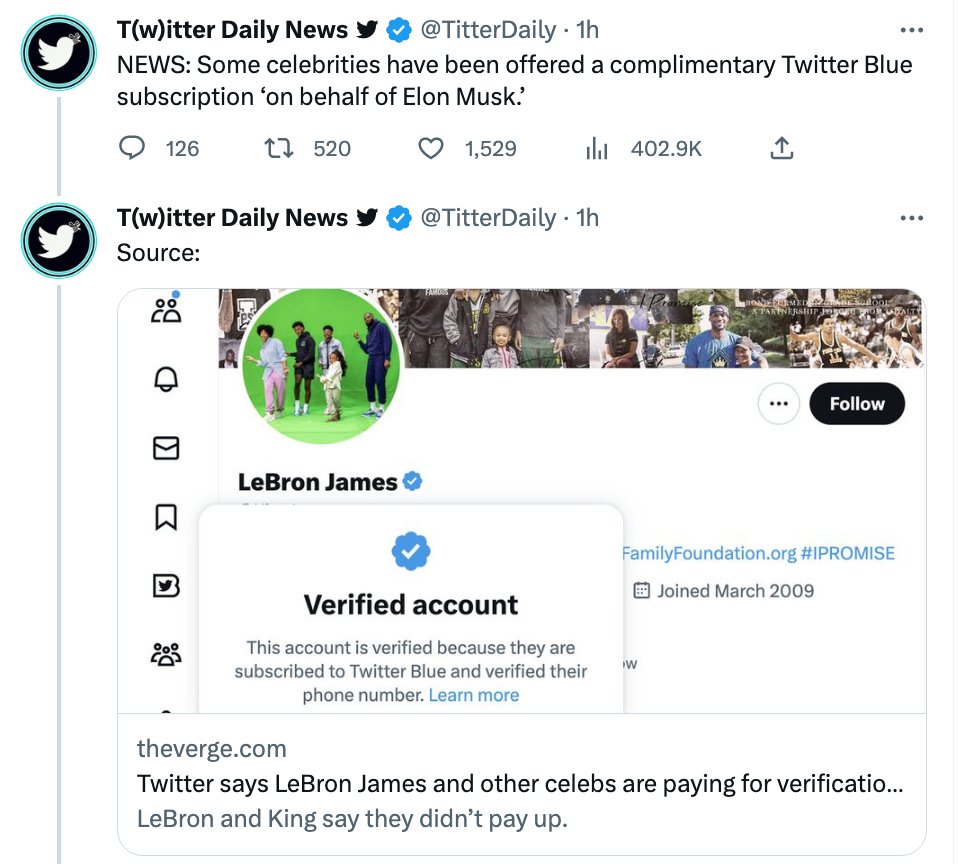
 I think there's a widespread misconception that most journalists deeply care about the status-optics of "Blue Checks" (it's actually a white check surrounded by blue, but anyway). The vast majority just want a way to reach ppl and filter out crazies.
I think there's a widespread misconception that most journalists deeply care about the status-optics of "Blue Checks" (it's actually a white check surrounded by blue, but anyway). The vast majority just want a way to reach ppl and filter out crazies.https://twitter.com/chucknisga/status/1649203466622103552?s=20